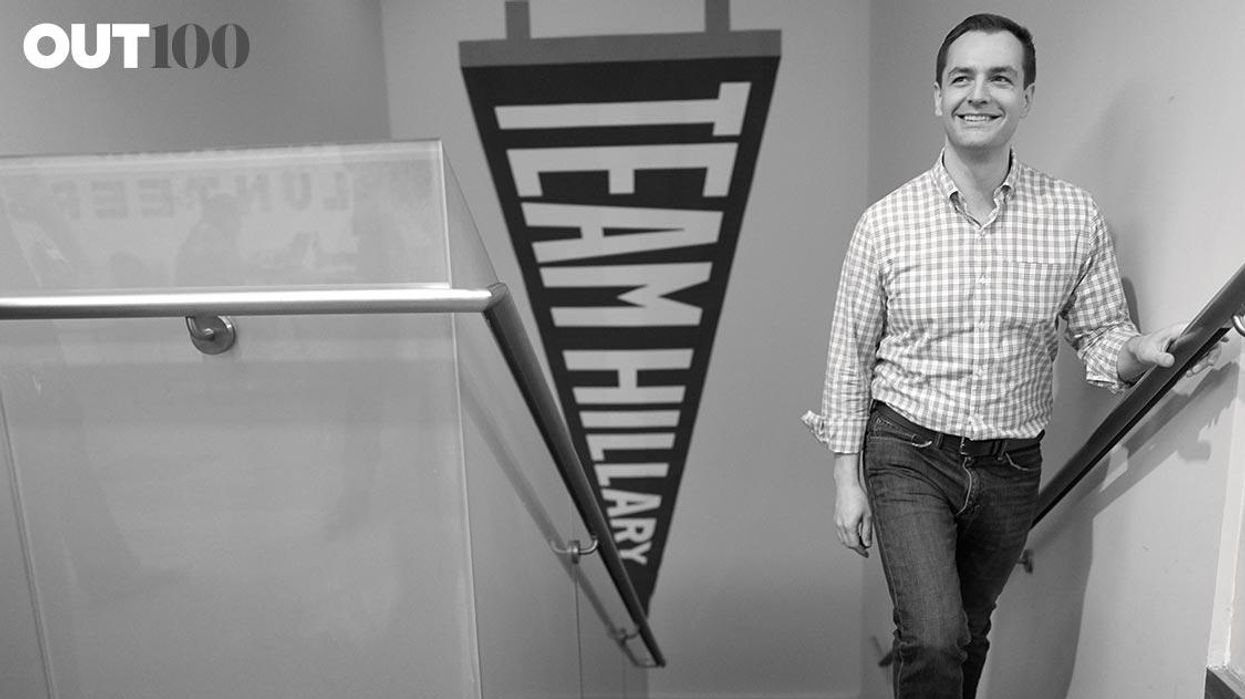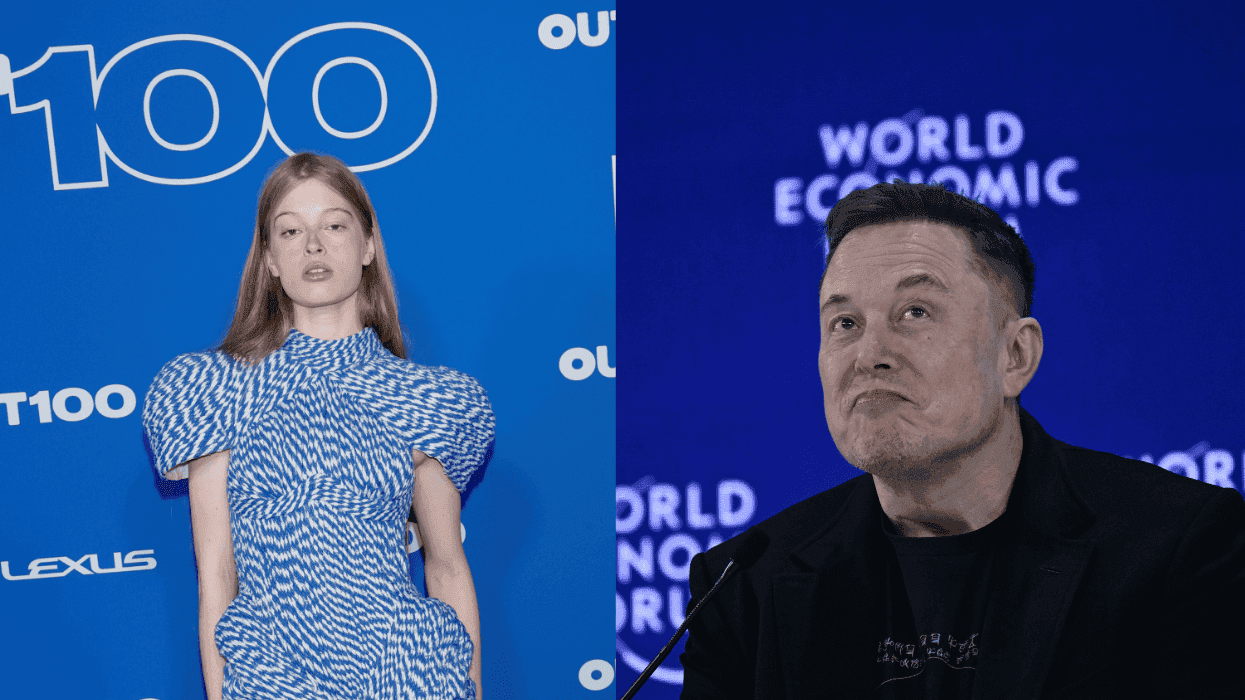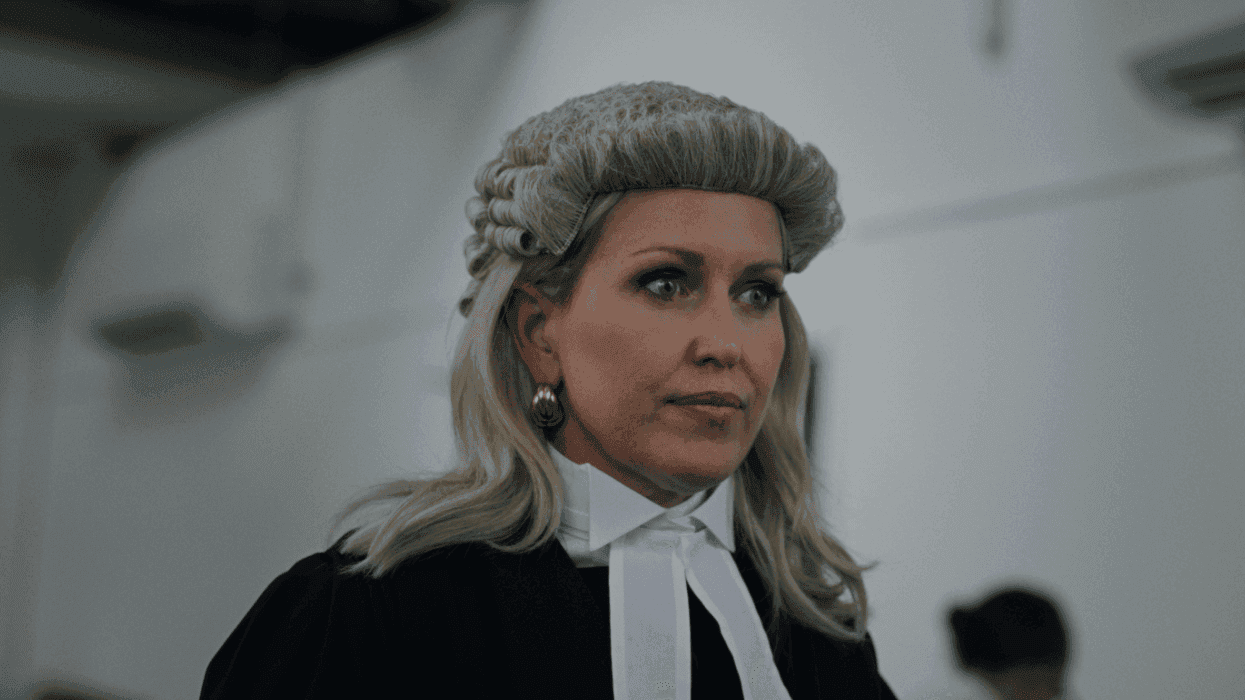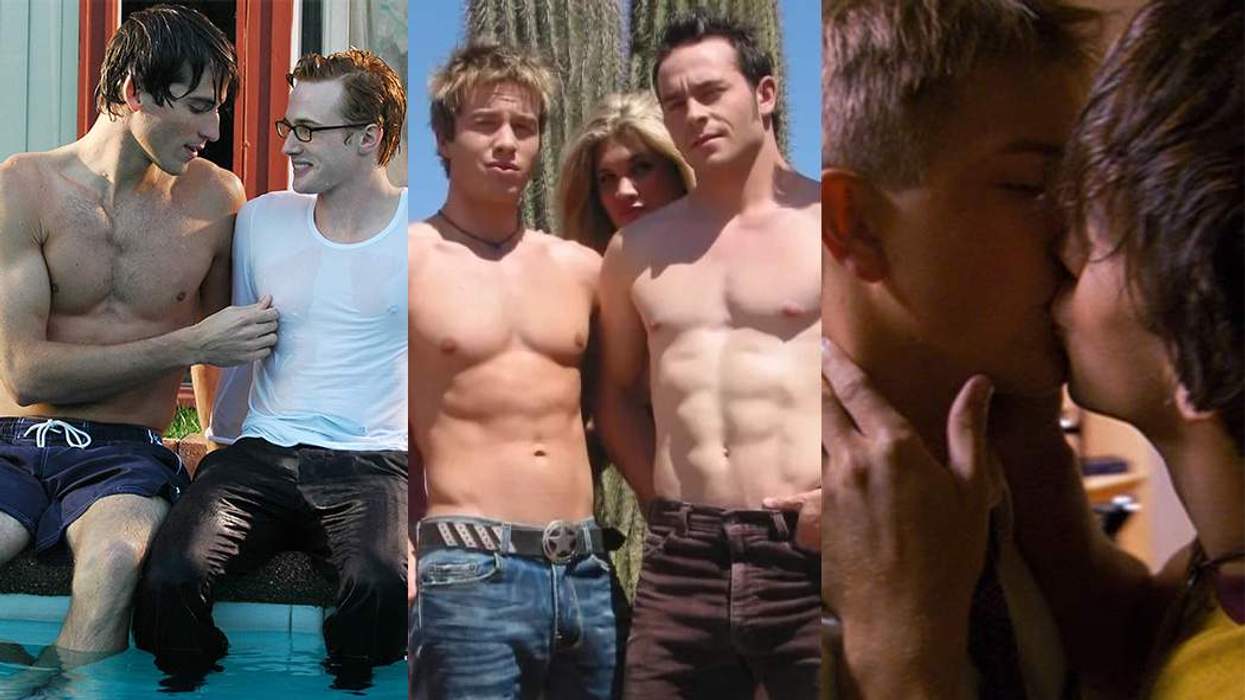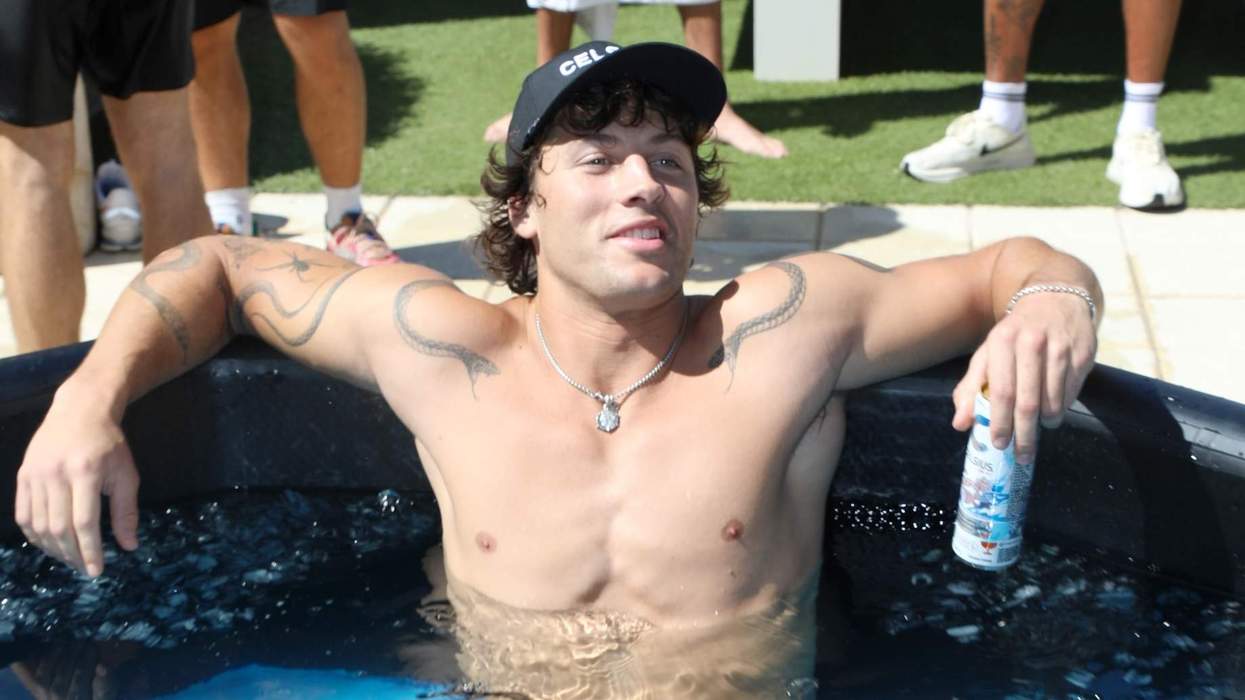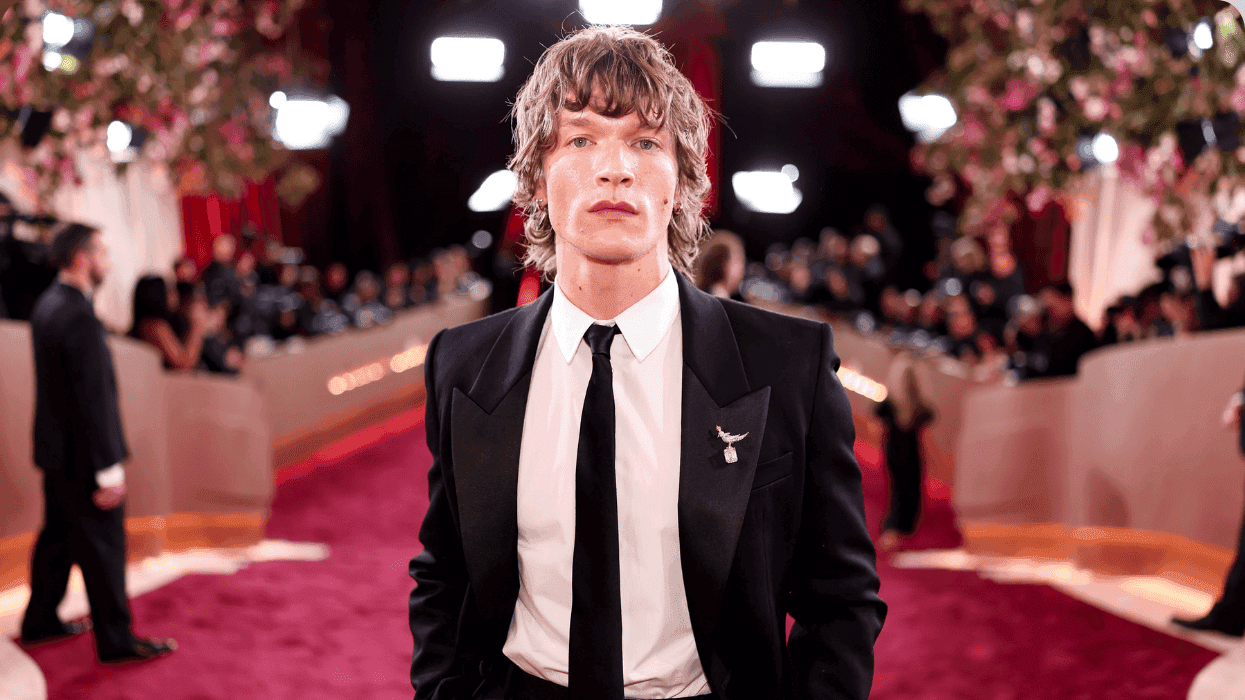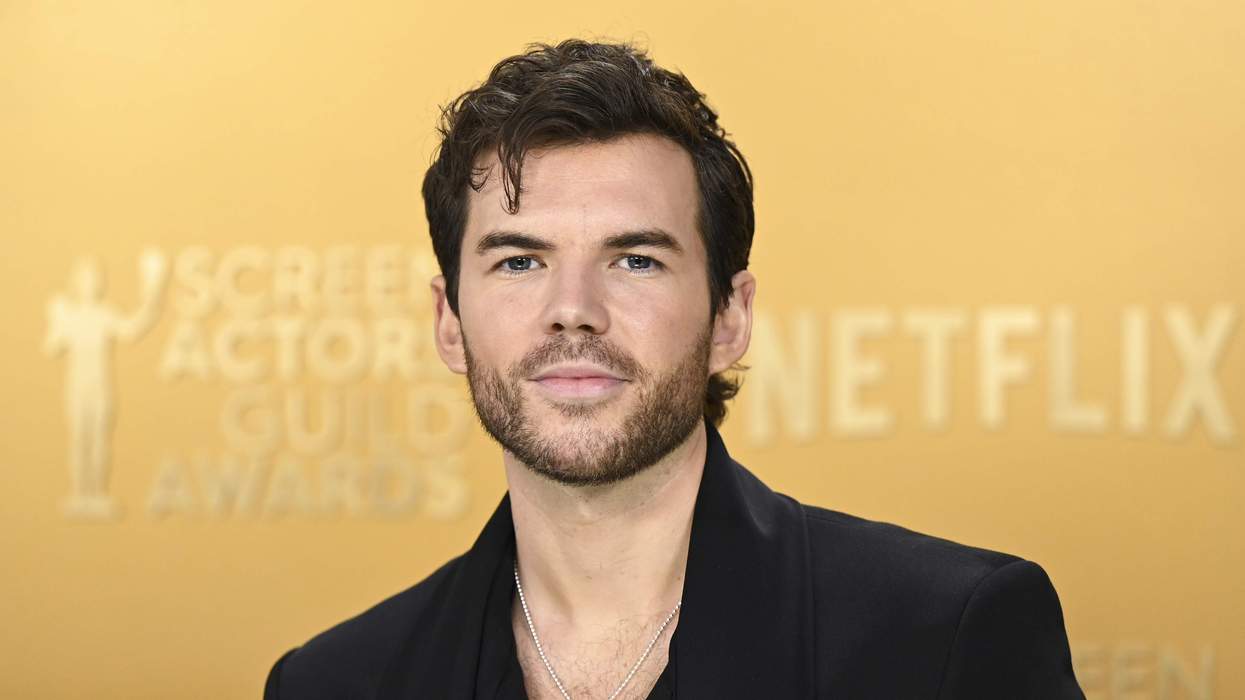OUT100 honoree Robby Mook, Hillary Clinton's campaign manager. Photography by Gavin Bond. Groomer: Amber Amos for The Only Agency using Sisley Paris. Photographed at Hillary Clinton Campaign headquarters, Brooklyn, on September 30, 2016.
"If you're willing to fail interestingly, you tend to succeed interestingly," wrote Edward Albee, a three-time Pulitzer Prize winner, and one of the 20th century's great writers. I met him twice -- once in the 1990s to profile him for a British newspaper, and again in 2008 at a shoot for the OUT100. On both occasions I felt out of my depth, because I was. Albee was a fierce intellect with little time for the stupid or naive, and in his presence you might easily feel both. He died in September, and I am glad he did not get to see the results of this shabby political season, in which ignorance trumped intellect. Albee liked to provoke his audience, and likely his plays today would come labeled with trigger warnings. He believed fixed opinions should always be challenged. "Any play that doesn't offend somebody probably has something terribly wrong with it," he once said. "A lot of people should be offended, deserve to be offended. One shouldn't pull any punches. I'd rather be a disturber than a pacifier." That, in a nutshell, is the history of the queer movement at its best: disturbers of the peace who do not pull their punches. If there was ever a time for that spirit it is now.
Albee has been on my mind as we put together this year's OUT100. It has been more than 10 years since I joined Out and suggested to the editorial team that a better way to honor 100 people each year would be to photograph them all -- a monumental challenge at which we occasionally fail, and often succeed, but always interestingly. Much of that team are still with me, buttressed by others who have since joined and apply a similar fervor to this annual exercise. Along the way we've had the opportunities to meet and photograph our heroes, as well as the heroes of tomorrow. In that same issue with Albee, you can also see Gus Van Sant, Sir Ian McKellen, Rachel Maddow, and Denise Simmons, the then-newly-elected mayor of Cambridge, Mass., and the first lesbian African-American mayor in the United States. I just checked Wikipedia, and I'm happy to report that Simmons is now serving her eighth term. This is how change comes. And this is how Out chooses to celebrate it. Looking through those 10 issues of the OUT100 is to see change in motion.
When we photographed President Obama for last year's OUT100, the first time a sitting president had been shot for a gay title, we knew a milestone had been achieved. Being able, this year, to shoot the LGBT staff in his administration, represents a grace note to Obama's two terms in office, and a terribly poignant reminder of what might have been had the results of Tuesday's election been different. To see a dangerous and vile clown like Rudi Giuliani being touted as attorney general is spine-chilling, and his record as mayor of New York a foreshadowing of what we can expect. Now is the time to shout the names of people like Amadou Diallo and Patrick Dorismond from the rooftops. The first was an unarmed 23-year-old Guinean immigrant shot 41 times and killed by cops who were consistently defended by the mayor (all were aquitted). The second was a Haitian-American shot by cops and vilified in death by Giuliani. Both were entirely innocent, and both were victims of racial profiling in a pre-social media age.
Social media may have turned us all into journalists, but we still need a vital and energetic press. A few months ago I had the chance to see Hamilton, with this year's OUT100 Breakout Star, Javier Munoz, in the lead. Both a celebration of America's robust democracy and of our diversity, Lin-Manuel Miranda's musical represents everything that we should cherish about the United States. But one song, in particular, stuck with me. "The Room Where It Happened" is about the secret dealings that happen in places of power and which impact us all. It's always been the role of journalists to find a way to be in the room where it happens -- that is how we hold people to account. Donald Trump has many sins, but among the most dangerous is his attack on freedom of the press. That's what happens in his spiritual motherland, Putin's Russia, and we have to ensure it doesn't happen here. We have no idea how the next few months and years will evolve, but if we're to understand how the new administration plans to govern this country, we need to find a way to be in the room where it happens. Let's ensure that President Trump does not thwart that bedrock principle of democracy.
It goes without saying that this year's portfolio could not be representative without paying tribute to the men and women who lost their lives at Pulse nightclub in Orlando, and those who rose to the challenge in the aftermath of that grim assault on our freedom. But nor would it have been representative without acknowledging the extraordinary place the LGBT community finds itself in today. Just take a look at our cover stars -- a Latino HIV-positive leading man on Broadway (Javier Munoz), a stunning transgender African-American model chosen as a face for beauty giant Clairol (Tracey Norman), a legendary fashion designer-turned-movie director (Tom Ford), and Ellen DeGeneres -- who came out in 1997 when it was bold and brave in ways today's emerging stars can hardly imagine. She got some shit for that, as she tells managing editor R. Kurt Osenlund, but she emerged on the other side stronger, better, and more successful than ever -- for refusing to pull her punches. That is the story of our community, and of the OUT100, and it's one we need to keep telling, as urgently today as ever.
Like what you see here? Subscribe and be the first to receive the latest issue of Out. Subscribe to print here and receive a complimentary digital subscription.


